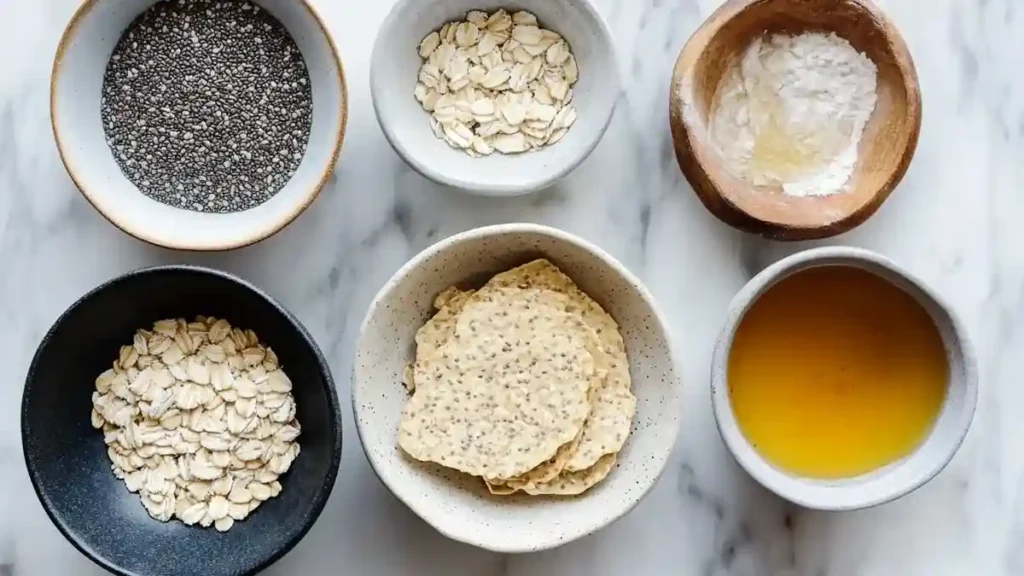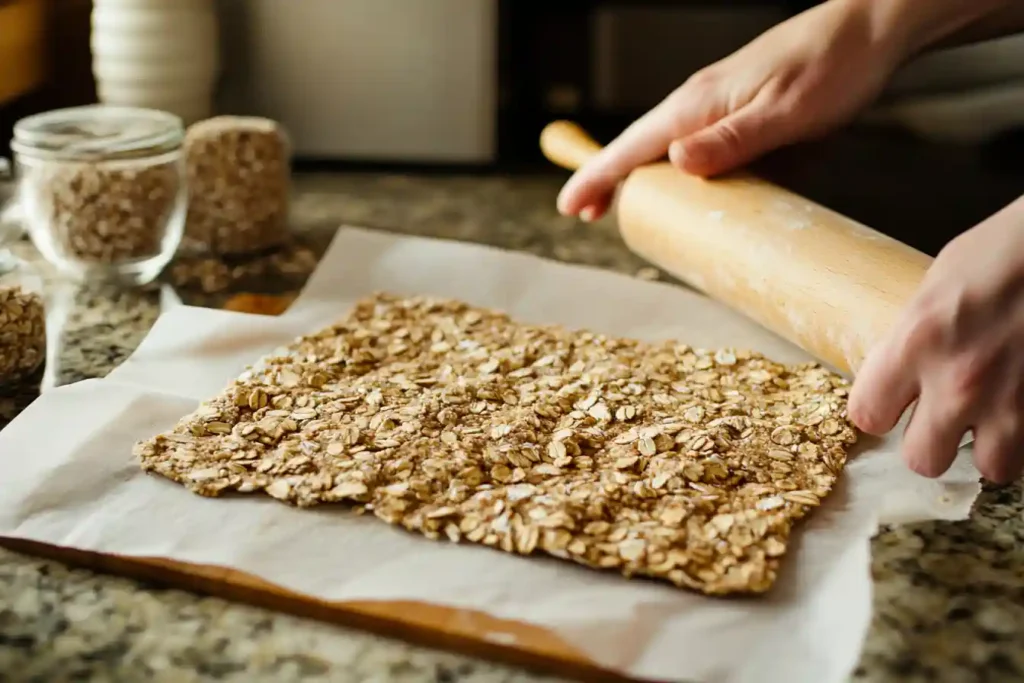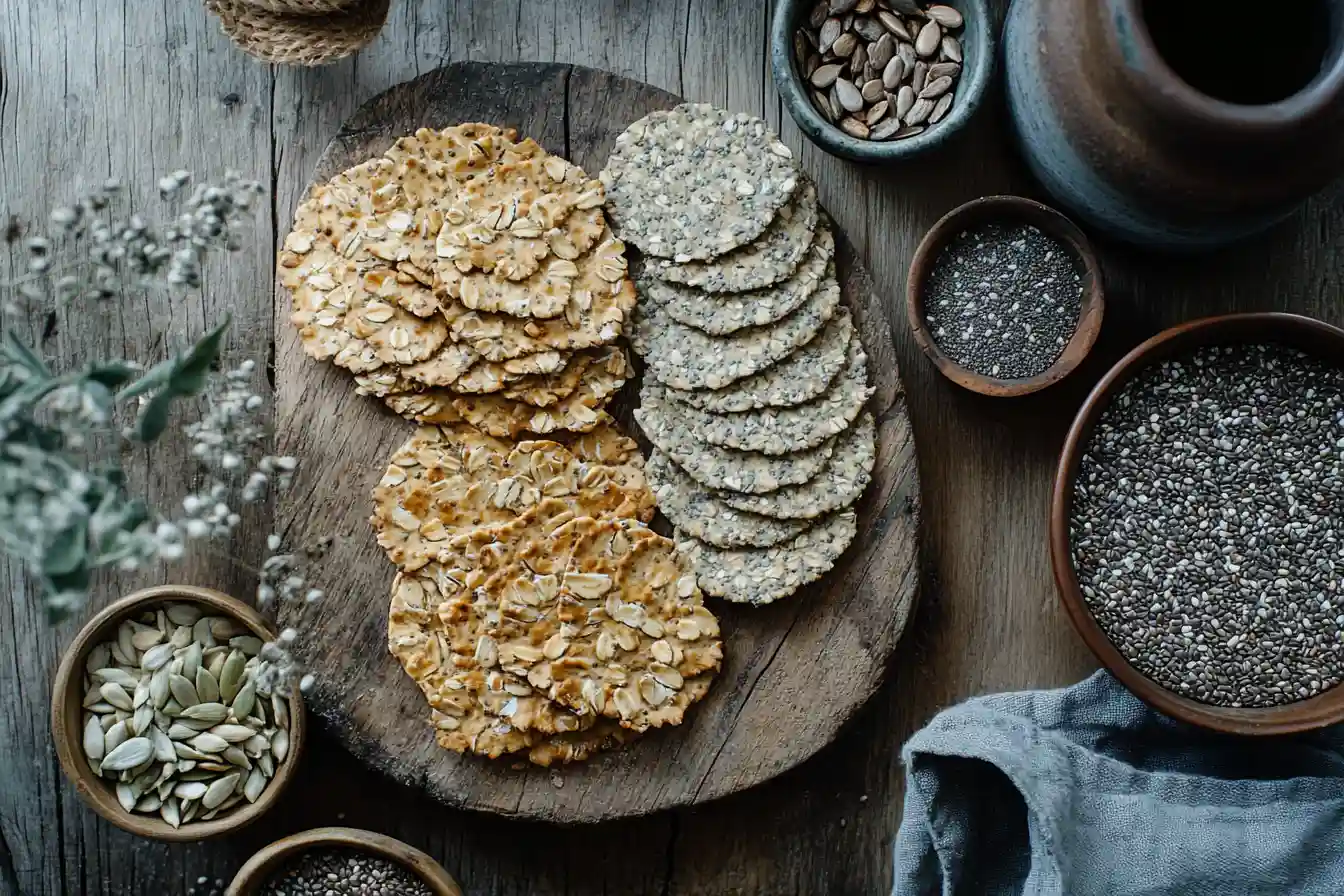What Are Seed Oat Crackers?
Introduction to Seed Oat Crackers
I still remember the first time I had seed oat crackers. It was at my Mexican neighbor Maria’s home, during a weekend get-together. She placed a plate of golden, rustic-looking crisps on the table and offered me one. “These are homemade. No flour, just oats and seeds,” she said with pride. The crunch, the nuttiness, the slight sweetness—I was hooked.
Seed oat crackers are thin, crisp snacks made primarily from rolled oats and a variety of seeds such as chia, sunflower, pumpkin, and sesame. These crackers are typically baked, not fried, making them a healthier alternative to commercial snacks. The chia seeds act as a binder when mixed with water, eliminating the need for flour or eggs.
Popularity and Market Trends
In recent years, the market for gluten-free snacks has expanded rapidly, with seed oat crackers riding the wave. More consumers are turning to these nutrient-dense options as alternatives to traditional processed crackers. Available both in health food stores and major supermarkets, they reflect a growing awareness of whole food snacking.
Nutritional Benefits of Seed Oat Crackers
Rich in Dietary Fiber and Essential Nutrients
When I make seed oat crackers at home, I always remind myself why I started: to support my family’s health with snacks that actually nourish. Oats are naturally rich in soluble fiber, particularly beta-glucan, which supports heart health by helping to lower LDL cholesterol levels. Meanwhile, the seeds I mix in—like chia, pumpkin, and sunflower—bring in healthy fats, plant-based protein, zinc, magnesium, and antioxidants.
Each ingredient contributes:
- Chia seeds: High in omega-3 fatty acids and fiber.
- Sunflower seeds: Rich in vitamin E and selenium.
- Pumpkin seeds: Provide iron and protein.
- Sesame seeds: Add calcium and magnesium.
Together, they form a complete snack that fuels the body, supports digestion, and sustains energy levels throughout the day.
Gluten-Free and Vegan-Friendly Options
These crackers are naturally gluten-free and suitable for vegan diets when prepared without honey. It is essential, however, to check product labels for cross-contamination if you are sensitive to gluten. Certified gluten-free oats and clean baking practices ensure they remain safe for everyone in the household.
How to Make Homemade Seed Oat Crackers

Essential Ingredients and Variations
Every Sunday, my aunt used to make a big batch of seed oat crackers, storing them in an airtight tin for the week ahead. Her kitchen smelled of roasted seeds and maple syrup. The ingredients are simple and flexible:
Base ingredients:
- Rolled oats
- Chia seeds
- Sunflower seeds
- Pumpkin seeds
- Sesame seeds
- Salt
Optional additions:
- Maple syrup or honey (for mild sweetness)
- Garlic powder or rosemary (for savory notes)
- Olive oil or coconut oil
Step-by-Step Preparation Guide

- Mix dry ingredients in a large bowl: oats, seeds, and salt.
- In a separate bowl, combine wet ingredients: water, oil, and maple syrup.
- Pour wet mixture into dry and stir until fully soaked. Let rest for 10 minutes.
- Transfer to parchment-lined baking sheet. Press flat using a second sheet of parchment and a rolling pin.
- Bake at 375°F for 20 minutes, flip carefully, and bake another 15 minutes.
- Cool completely and break into pieces.
Tips for Perfect Crackers
- Roll thin: About 1/8 inch ensures crisp texture.
- Do not underbake: Moisture can reduce shelf life.
- Store airtight: Keep for up to a week at room temperature.
Homemade versions are easy, affordable, and allow for creativity.
Top Store-Bought Seed Oat Crackers Reviewed
Nairn’s Organic Super Seeded Oat Crackers
These whole grain crackers are a staple in our pantry. With only 135 calories per serving (3 crackers), they offer 3g of fiber and no artificial preservatives. Their lightly salted surface and hearty texture make them ideal for pairing with hummus or avocado.
180 Degrees Original 4 Seed Oat Crackers
These crisp, rectangular crackers contain chia, sesame, linseed, and poppy seeds. At 97 calories per 5 crackers, they are lighter and crumblier, with a nutty profile. They also come in resealable packaging, which preserves freshness.
Comparison and Recommendations
While both options are excellent, Nairn’s feels more substantial for those looking for nutrient-dense crackers, while 180 Degrees is ideal for on-the-go snacking. Both are widely available and priced similarly at around $4 to $5 per pack.
Creative Ways to Enjoy Seed Oat Crackers
Pairing with Dips and Spreads
One of my favorite quick lunches is a plate of seed oat crackers with hummus and red pepper tapenade. Other great pairings include:
- Nut butters (almond, peanut, cashew)
- Avocado mash with lime and chili
- Herbed cream cheese
Incorporating into Meals
Crackers are not just snacks. Try:
- Using them as a base for smoked salmon and capers
- Crumbling them over tomato soup or creamy pumpkin bisque for texture
- Packing them in lunch boxes with cheese and fresh fruit
FAQs About Seed Oat Crackers
Are sesame seed crackers good for you?
Yes. Sesame seeds are high in healthy fats, particularly polyunsaturated fats, as well as plant-based protein, calcium, and antioxidants. When used in seed oat crackers, they contribute to better heart health and provide a satisfying crunch.
Are seeded crackers healthy?
Generally, yes. Seeded crackers made with whole ingredients like oats and seeds are rich in fiber, healthy fats, and essential nutrients. They support digestion and satiety, unlike highly processed crackers loaded with additives.
Are oat crackers healthy?
Oat crackers, particularly when minimally processed and made with whole oats, are an excellent source of soluble fiber. This type of fiber helps regulate blood sugar, supports digestive health, and lowers cholesterol.
What is seed oats?
Seed oats refer to oats that are either grown specifically for planting or retained in their whole grain form for consumption. In the context of baking, seed oats offer a hearty texture and nutritional value.
Conclusion and Final Thoughts
Seed oat crackers are more than just a trend—they are a delicious, nutrient-dense snack option that supports a balanced diet. Whether you prefer homemade batches with your own custom blend of seeds or you rely on trusted store-bought options, these crackers offer real benefits.
I encourage you to try crafting your own. The process is therapeutic, the result is rewarding, and the nutritional return is well worth the effort. For busy days, keep a box of your favorite brand on hand. Either way, you are nourishing your body with every bite.


